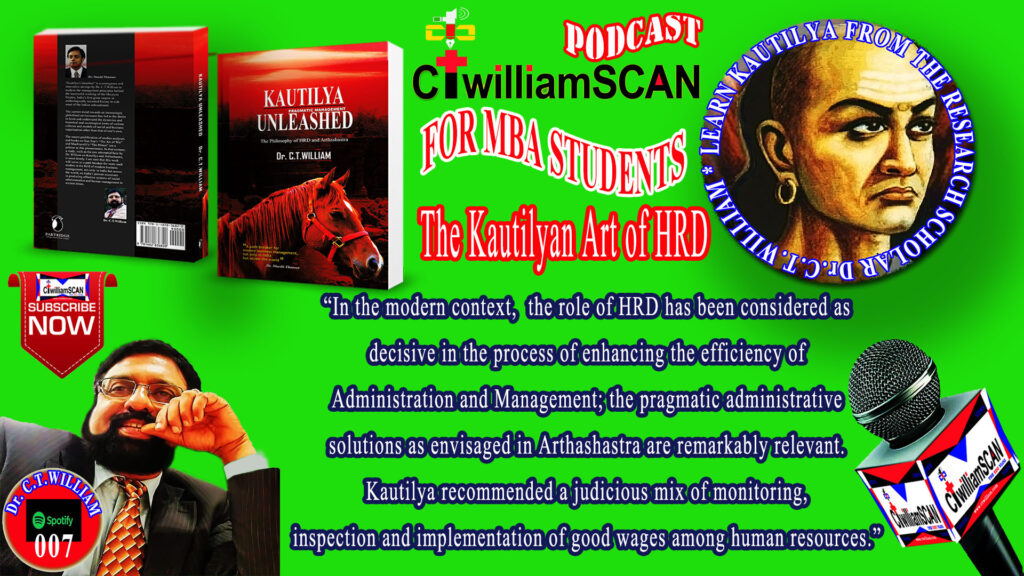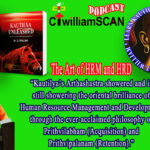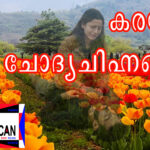The Philosophy of Human Resource Development (HRD) and the science of economic liberalization have been ideologically synthesized later. Dr. P. Subba Rao (1996) has described this synthesis as follows: – “HRD assumes significance in view of the fast changing organizational environments and the need of the organization to adopt new techniques in order to respond to these environmental changes. The changing environmental factors include unprecedented increase in competition within and outside the country consequent upon the announcement and implementation of economic liberalizations.”
It is this re-invented Strategy of Human Resource Development (HRD) that enables the society to overcome such unprecedented increase in competitive trends. It is this scientific Human Resource Planning (HRP) that capacitates the society for these tasks, and the capacity will certainly work in the present as well as in the future. Watch and Listen to Video
In the modern context, where the role of HRD has been considered as decisive in the process of enhancing the efficiency of Administration and Management; the pragmatic administrative solutions as envisaged in Arthashastra are remarkably relevant. Kautilya recommended a judicious mix of monitoring, inspection and implementation of good wages among human resources. He understood the needs, nature and aspirations of workers. For example, he (Subramanian, 2000, p. 108) stated, “One should avoid the country where there is no reward for work, no activity, no relatives or no means of learning.” According to Kautilya [p. 283] “The king shall have the work of Heads of Departments inspected daily, for men are, by nature, fickle and, like horses, change after being put to work [Bk.2.Ch.9.Vs.2,4.}. “
It was impossible for the king to supervise the Heads of Departments personally because they were stationed at distant locations. Therefore, the king should pay incentive wages to the Heads of Departments and also get their work inspected to reduce shirking. Similarly, he prescribed [p. 289] that the Administrator or Chancellor and the Treasurer would be paid 24000 Panas annually, “enough to make them efficient in their work.” Such a high reward should be compared to the yearly minimum wage for an unskilled worker, which was only 60 Panas at this time. These facts prove that those modern practical administrative solutions have the nature of a successful continuum from the past to the present.
The Philosophy of Human Resource Development (HRD) that is widely discussed among the Gurus of the modern administration and management, still exploring the unfathomable possibilities of human resource management in their management school laboratories. Hence, the ultimate aim of my book is always the pragmatic application of HRD in the areas of administration and management of the simple organization to the complex people management of the state administration.
This article will continue. Please stay tuned.

Writing is the intellectual interpretation of vision. Vision is the window open to philosophy. This is the scriptural metamorphosis of Dr. C.T. William’s writing. It was this scriptural phenomenon that inspired Dr. C.T. William to write several of his remarkable literary works. Being an Indian writer who blossomed in the Gods' own country, Kerala, his literary creations are debated among the chosen intellectual minority rather than the elected popular majority.
C.T. William has nine books to highlight his literary splendors. Manava Vibhava Vikasana Thathwachinthayum Arthashastravum (Malayalam: Philosophy, 2005, Publishers: Kerala Sahithya Academy, Thrissur), Ithuvare (Malayalam: Poems, 2009, Publishers: Current Books, Thrissur), Shabdham Ayodhya Vare Ethumbol (Malayalam: Criticism, 2011, Publishers: Sign Books, Thiruvananthapuram), Vilapatthinte Ilakal (Malayalam: Poems, 2013, Publishers: Maluben Books, Thiruvananthapuram), Nakshathrangal Chuvakkunnilla (Malayalam: Travelogue, 2013, Publishers: Dharmartham Books, Thrissur), Shesham Sheshan (Malayalam: Biography, 2013, Publishers: Mathrubhumi Books, Kozhikode), Kautilya Unleashed (English: Management, 2014, Publishers: Partridge India, A Penguin Random Company), Seethamar Karayukayaanu (Seetha is crying), (Malayalam: Poems, 2018: Publishers: Mentor Books, Thrissur) and Swargeeya Narakam (The heavenly Hell), (Malayalam: Travelogue, 2018: Publishers: Mentor Books, Thrissur).
It was Dr. C.T. William’s unquenchable thirst for pragmatic philosophy that resulted in the writing of the book "Kautilya Unleashed" (published by Partridge India). The practical philosophy he invented and got inspired by the philosophy of human resource development that is inherent in the great Indian classic Arthashastra of Kautilya-the cosmic guru who wrote the Bible of administration and Management.
This book is an authentic guide and hand book for the global citizen to lead a successful life personal, political as well as organizational by applying the gospels of Human Resource Development and Management that have deep-rooted in the Oriental Philosophy. It is the Bible of management, specifically of human resource development. It consists of the gospels of administration, political diplomacy, philosophy of human resource development, economics, psychology of society, and the ethics of war and peace.
"The book Kautilya Unleashed will appeal to readers because it is an essential practical guide for global citizens, students of management, and the leaders of the world," Dr. William said. " Compared to other books of its kind, it is a simplified version of philosophic management thoughts in which students of management and general readers could easily follow and encapsulate," he added.
"Kautilya Unleashed" is the fruitful effort of a decadal intellectual meditation of the author. It will energise the readers and inspire them to work for the reconstruction of themselves, their society, nation, and the world.


